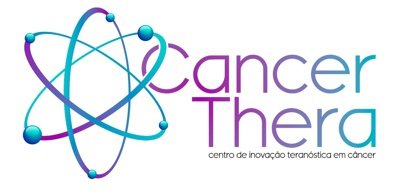
In recent years, scientists have been searching for new alternatives for the treatment of bacterial infections and cancers, especially through the application of metal-based compounds. The use of metal-based drugs, such as cisplatin, has already proven effective in combating various types of tumors, but its side effects (including kidney and nervous system damage) encourage the search for safer treatments.
Silver, known for its presence in burn creams, has also gained prominence in cancer drug research, representing promising advances in the quest for more personalized and less toxic treatments for cancer patients.
Researchers from national and international institutions, including representatives from CEPID CancerThera, participated in a study initiated in 2022 in which new silver compounds were developed with uracil derivatives—one of the nitrogenous bases that make up RNA (ribonucleic acid), a molecule that plays a fundamental role in protein synthesis in the body’s cells.
An article resulting from the study, titled “Antibacterial Profile and Antiproliferative Activities Over Human Tumor Cells of New Silver(I) Complexes Containing Two Distinct Trifluoromethyl Uracil Isomers,” was published in the scientific journal Journal of Inorganic Biochemistry (2025, v. 262; DOI: 10.1016/j.jinorgbio.2024.112752).
In the article, the research team reports the synthesis, as well as the spectroscopic and structural characterization, along with the in vitro screening of the antibacterial and antiproliferative activities in human tumor cells of the two silver(I) complexes investigated: one with 5-(trifluoromethyl)uracil (Ag-5TFMU) and another with 6-(trifluoromethyl)uracil (Ag-6TFMU). The silver complexes exhibited antibacterial activity against Pseudomonas aeruginosa, Escherichia coli, Staphylococcus aureus, and Bacillus cereus strains and demonstrated antiproliferative efficacy against kidney, ovary, prostate, and tongue tumor cells, inducing their death.
Ma. Gabriele de Menezes Pereira, a chemist and PhD researcher at the Institute of Chemistry of the State University of Campinas (IQ/Unicamp), highlights the antiproliferative efficacy of the Ag-5TFMU and Ag-6TFMU complexes on tongue tumor cells as one of the most significant results obtained. “These results make the compounds promising as potential therapeutic agents in the future,” says the researcher, who, in addition to being the article’s author, developed several fundamental stages of the investigation during her ongoing doctorate, including synthesis, characterization, and biophysical assays.

Next steps
The researcher explains that the next steps involve conducting biological assays at different compound concentrations to assess the viability and efficacy of the complexes more comprehensively. “As chemists, our responsibility is to provide basic research, including synthesis and characterization, and now the focus is on advancing biological action assays,” Pereira details.
The interaction with biomolecules was also investigated, but further studies are still needed, as “they allow us to determine possible cellular targets of these drug candidates, such as DNA and proteins, aiming to uncover their mechanism of action,” explains Dr. Pedro Paulo Corbi, professor at IQ/Unicamp, principal researcher at CEPID CancerThera, and Pereira’s advisor.
These new studies will help the team better understand how these compounds may act in the body in vivo. “This will allow us to advance the research, seeking to validate the results and explore the therapeutic potential of the compounds so that, eventually, they may benefit the population,” says the doctoral researcher.
Researchers from CEPID CancerThera involved in the study:
- Ana Lucia Tasca Gois Ruiz (Faculty of Pharmaceutical Sciences, Unicamp)
- Carmen Silvia Passos Lima (Department of Anesthesiology, Oncology, and Radiology, Faculty of Medical Sciences, Unicamp)
- Daniele Daiane Affonso (Faculty of Medical Sciences, Unicamp)
- Fernando Rodrigues Goulart Bergamini (Laboratory of Bioinspired Molecule Synthesis, Institute of Chemistry, Federal University of Uberlândia)
- João Ernesto de Carvalho (Faculty of Pharmaceutical Sciences, Unicamp)
- Pedro Paulo Corbi (Institute of Chemistry, Unicamp)
Other members of the research team:
- Alexandre Cuin (Institute of Exact Sciences, Department of Chemistry, Federal University of Juiz de Fora)
- Douglas Henrique Pereira (Chemistry Program, Federal University of Tocantins & Department of Chemistry, Aeronautics Institute of Technology)
- Gabriele de Menezes Pereira (Institute of Chemistry, Unicamp)
- Julia Helena Bormio Nunes (Institute of Inorganic Chemistry, University of Vienna)
- Kaio Eduardo Buglio (Faculty of Pharmaceutical Sciences, Unicamp)
- Norberto Masciocchi (Department of Science and High Technology, University of Insubria)
- Silmara Cristina Lazarini Frajácomo (Department of Biological and Health Sciences, University of Araraquara)
- Vinicius Souza Macedo (Chemistry Program, Federal University of Tocantins)
- Wilton Rogério Lustri (Department of Biological and Health Sciences, University of Araraquara)
Text: Romulo Santana Osthues




